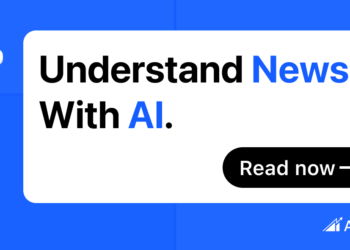Benzinga and Yahoo Finance LLC may earn commission or revenue on some items through the links below.
Charles Hoskinson, founder of Cardano and ex-co-founder of Ethereum, has been making waves with his bold vision for blockchain technology that goes far beyond typical cryptocurrency speculation. While Bitcoin could hit $250,000 as early as this year, according to Hoskinson’s recent predictions, his deeper message focuses on something potentially more revolutionary: blockchain as the foundation for a new kind of global financial democracy.
Hoskinson’s core thesis revolves around blockchain functioning as a “digital constitution”—an unchangeable set of rules that governs financial systems worldwide. Unlike traditional banking where your zip code, nationality, or net worth determines your access to services, blockchain promises universal equality. In this framework, a subsistence farmer in rural Africa receives the same treatment as a Fortune 500 CEO.
Don’t Miss:
This isn’t just philosophical idealism; it’s a practical response to real-world financial inequality. Traditional banking systems create hierarchies where premium clients enjoy expedited services, lower fees, and exclusive products, while billions remain unbanked or underbanked. Blockchain technology offers an alternative where mathematical algorithms, not human bias, determine access and treatment.
The current financial system operates through what Hoskinson describes as a “federated unchanging oligarchy”—a small group of powerful institutions that control global money flows. Central banks, major commercial banks, and payment processors essentially decide who can participate in the modern economy and under what terms.
Decentralized blockchain systems challenge this model by removing central gatekeepers. No single entity can freeze accounts, deny transactions, or impose arbitrary fees. This creates what Hoskinson calls “censorship-resistant” finance, where even controversial or unpopular participants cannot be excluded from the system.
Trending: New to crypto? Get up to $400 in rewards for successfully completing short educational courses and making your first qualifying trade on Coinbase.
Perhaps most intriguingly, Hoskinson positions blockchain as a solution to our increasingly fragmented global economy. In a world divided by trade wars, sanctions, and competing monetary policies, blockchain offers “objective reality”—a shared foundation that all parties can trust regardless of their political differences.
This has profound implications for international commerce. Currently, cross-border transactions require multiple intermediaries, each adding fees and delays while performing compliance checks. A truly decentralized system could reduce these frictions dramatically, potentially saving trillions in transaction costs annually.
The fundamental choice, according to Hoskinson, is whether society will build its financial future on centralized trust or decentralized trust. Traditional finance depends on faith in institutions—banks, governments, and regulatory bodies. Blockchain finance depends on faith in cryptographic algorithms and network consensus.
This shift has already begun manifesting in real markets. By 2025, Cardano had solidified its place among the top blockchain networks, boasting millions of users and a thriving ecosystem of developers, while institutional adoption of cryptocurrencies continues accelerating across traditional finance.
See Also: A must-have for all crypto enthusiasts: Sign up for the Gemini Credit Card today and earn rewards on Bitcoin Ether, or 60+ other tokens, with every purchase.
For investors, Hoskinson’s vision suggests several potential developments worth monitoring. First, the continued institutionalization of cryptocurrency could drive significant price appreciation—hence his aggressive Bitcoin price target. Second, blockchain-based financial services could disrupt traditional banking models, creating new investment opportunities while threatening established players.
However, this transformation won’t happen overnight or without resistance. Regulatory uncertainty remains a significant risk, as governments worldwide grapple with how to oversee decentralized systems that by design resist traditional oversight mechanisms.
Whether you view Hoskinson as a visionary or idealist, his blueprint for blockchain-based finance addresses real problems in the current system. The question isn’t whether blockchain will impact global finance—it already has. The question is how quickly and completely it will reshape the financial landscape.
For investors, this represents both opportunity and risk. Those who successfully navigate the transition could benefit from being early adopters of transformative technology. Those who ignore it might find themselves left behind as the financial world increasingly operates on new rails.
The blockchain revolution isn’t just about making money—it’s about reimagining how money itself works in a digital age.
Read Next: Named a TIME Best Invention and Backed by 5,000+ Users, Kara’s Air-to-Water Pod Cuts Plastic and Costs — And You Can Invest At Just $6.37/Share
Image: Shutterstock
This article This Ethereum Co-Founder Just Exposed How Financial Oligarchs Control Your Money—His Blockchain Solution Could Change Everything originally appeared on Benzinga.com

















